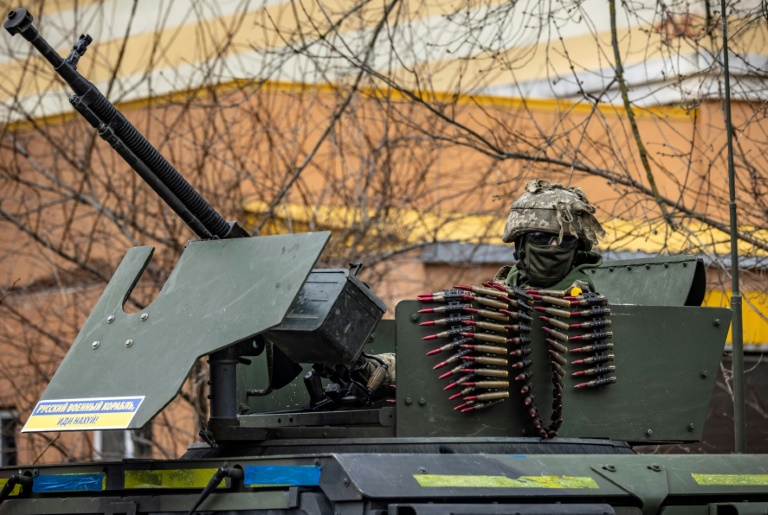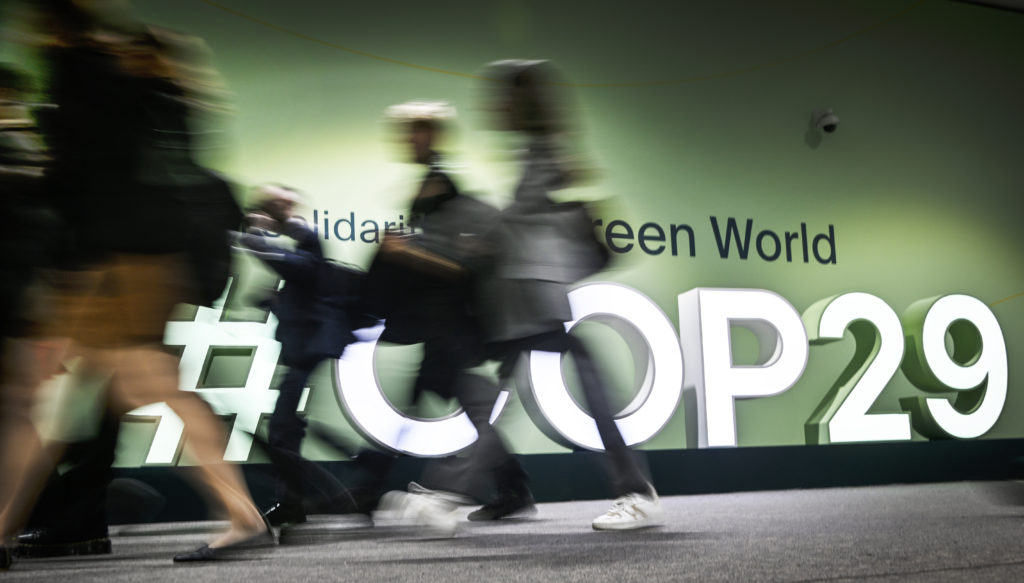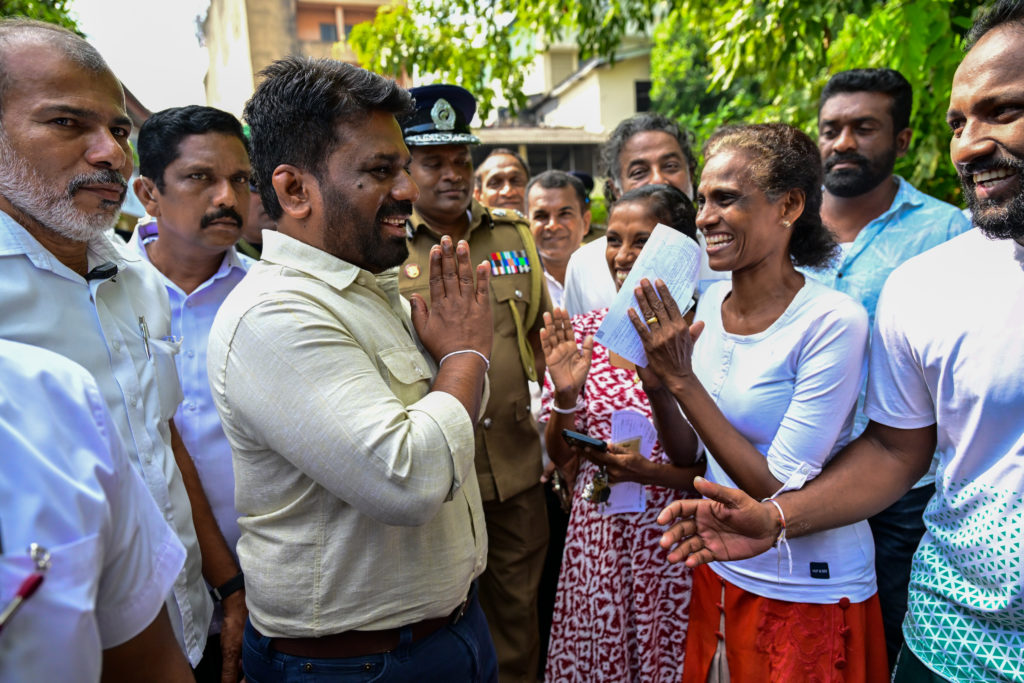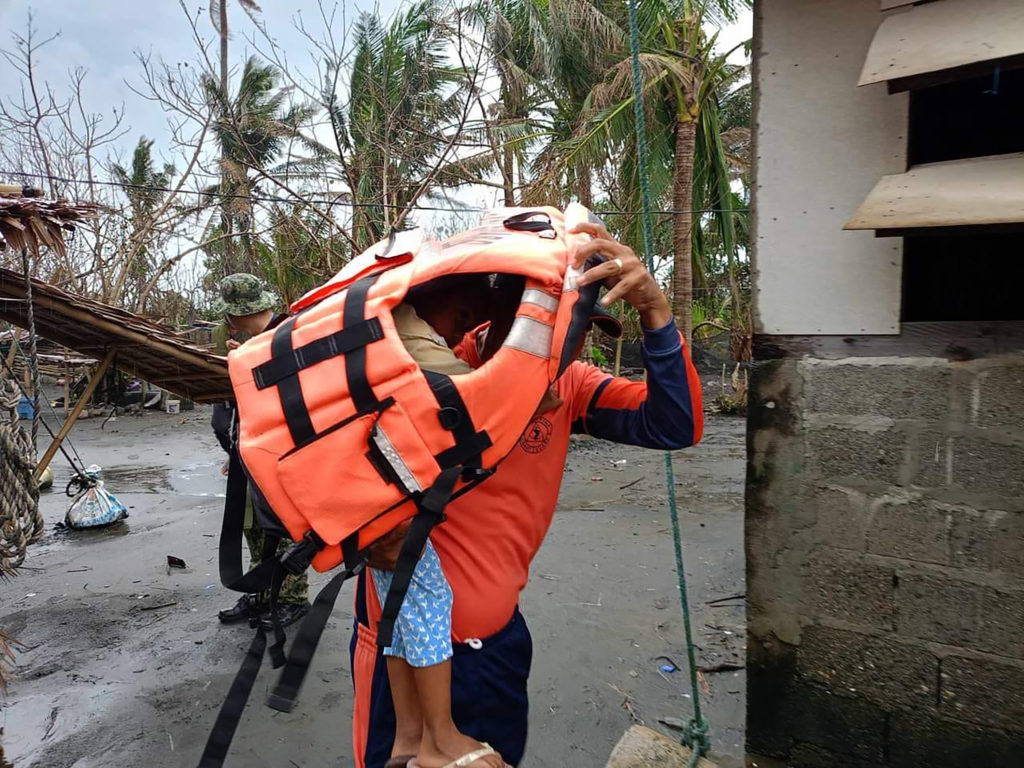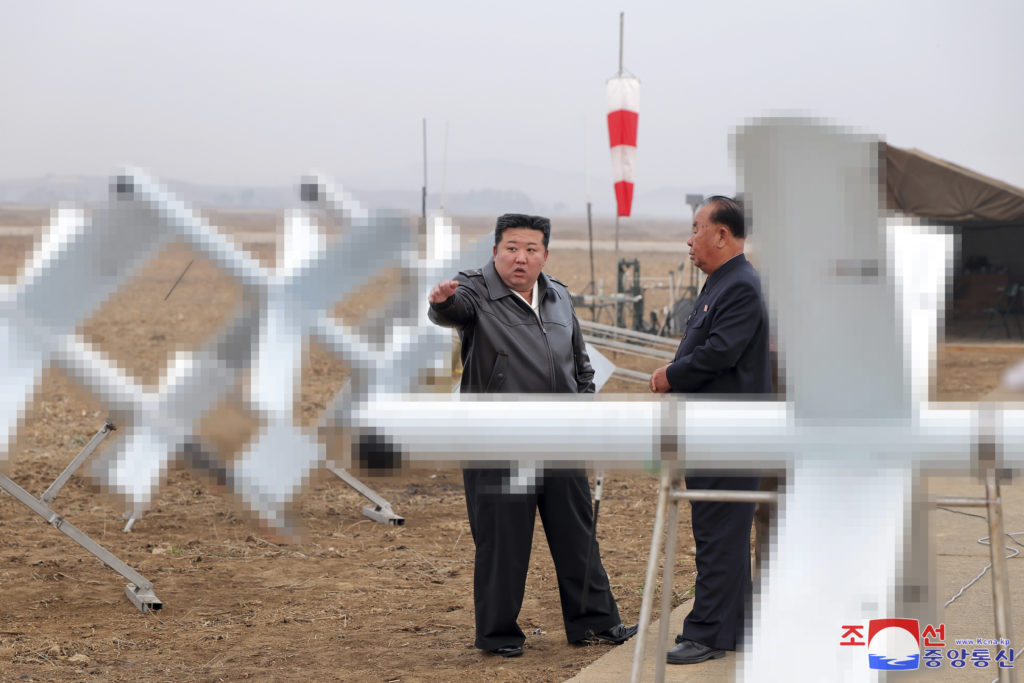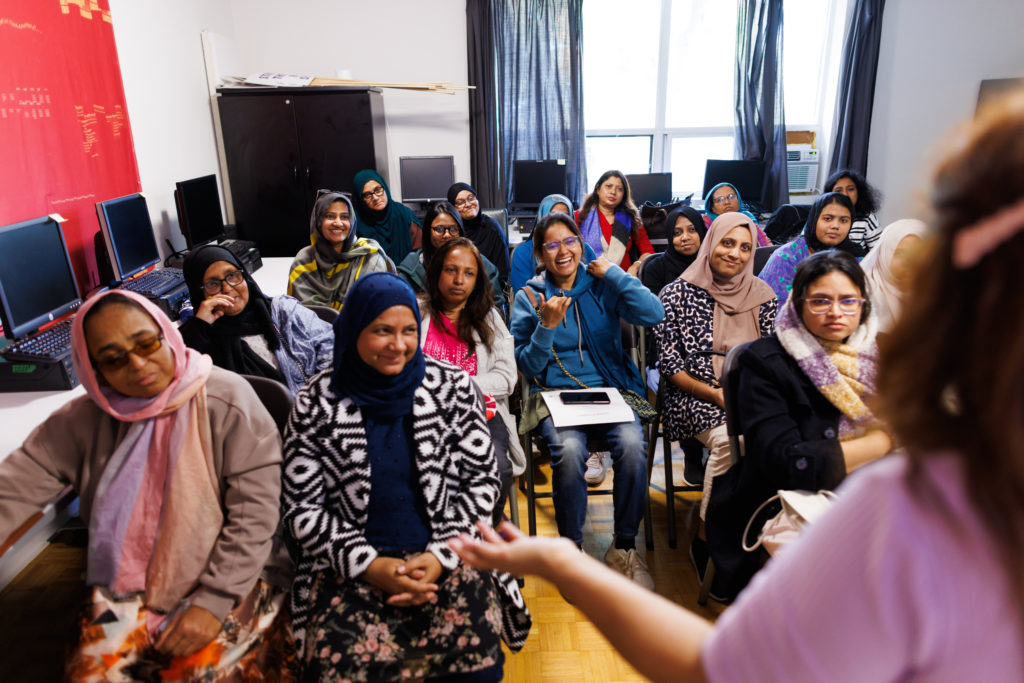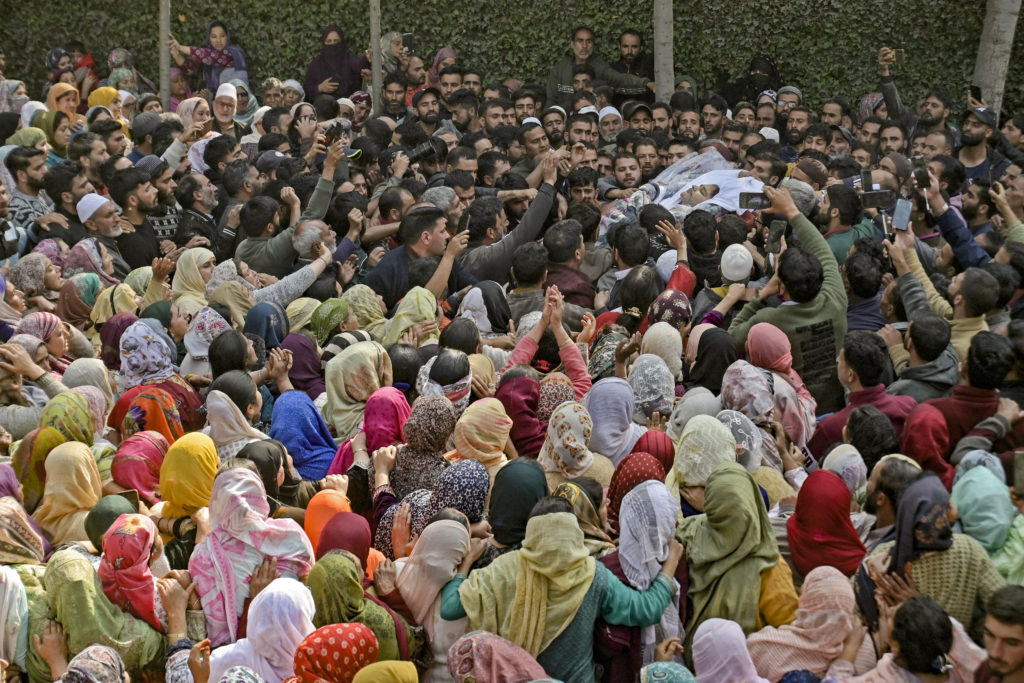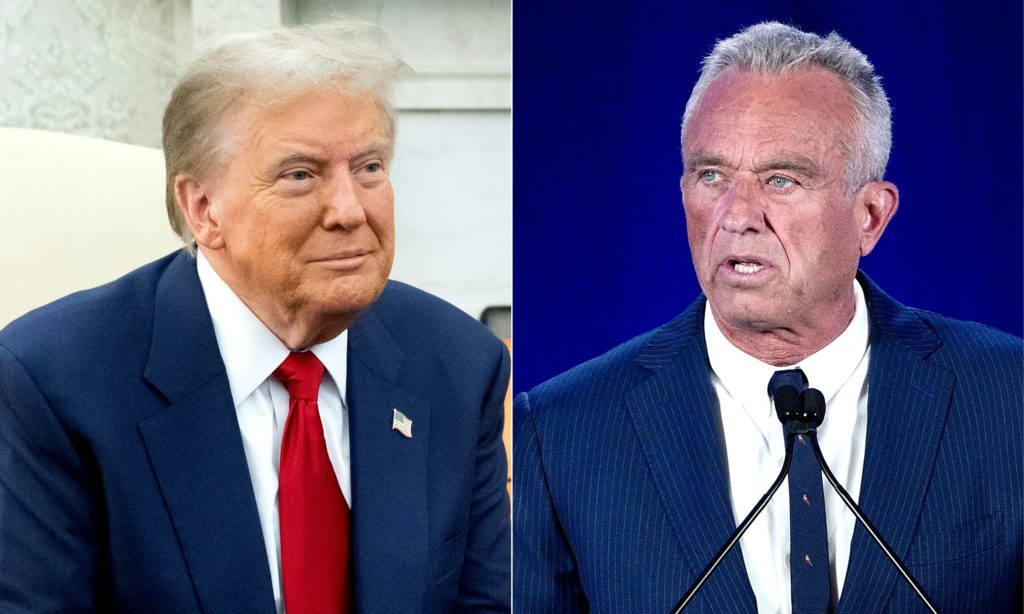France’s President Emmanuel Macron warned Sunday against a verbal “escalation” of Russia’s invasion in Ukraine, after US President Joe Biden branded Vladimir Putin a “butcher” who “cannot remain in power”.
The Kremlin had reacted in fury over Biden’s comments which it said narrows the window for bilateral relations, with Russia’s invasion of Ukraine now into a second month.
Macron said he would speak to Putin in the next two days to organise the evacuation of civilians from the heavily bombarded port city of Mariupol.
The French leader told broadcaster France 3 that he saw his task as “achieving first a ceasefire and then the total withdrawal of (Russian) troops by diplomatic means.”
“If we want to do that, we can’t escalate either in words or actions.”
Ukraine was making a new push to get civilians out of the city on Sunday, with an aid route agreement for people to leave by cars or on evacuation buses, said Deputy Prime Minister Iryna Vereshchuk.
Several attempts at establishing safe routes for civilians to flee have collapsed as both sides trade blame for violating temporary ceasefires.
Mariupol, in the region of Donetsk, has borne the brunt of Russia’s assaults, and residents who managed to flee have recounted harrowing scenes of death and destruction.
About 170,000 people remain trapped in the besieged city and authorities have said they fear some 300 civilians may have died in a Russian strike on March 17 that hit a theatre being used as a bomb shelter.
In an impassioned speech from the Royal Castle in Warsaw, Biden blasted Putin over Russia’s invasion of Ukraine.
“For God’s sake, this man cannot remain in power,” the US leader said, before the White House clarified that Washington was not seeking regime change.
The Kremlin snapped back, saying “a head of state should stay sober”.
– ‘Going to die anyway’ –
Personal attacks, said Kremlin spokesman Dmitry Peskov, were “narrowing down the window of opportunity” for bilateral relations.
“Biden is weak, sick and unhappy,” said Vyacheslav Volodin, president of the lower house of parliament.
Putin sent troops into Ukraine on February 24, vowing to destroy the country’s military and topple pro-Western President Volodymyr Zelensky.
But his army has made little progress on capturing key cities, and it has hit hospitals, residential buildings and schools in increasingly deadly attacks on civilians.
In Kharkiv, where authorities reported 44 artillery strikes and 140 rocket assaults in a single day, residents were resigned to the incessant bombardments.
Anna Kolinichenko, who lives in a three-room flat with her sister and brother-in-law, said they do not even bother to head down to the cellar when the sirens go off.
“If a bomb drops, we’re going to die anyway,” she told AFP. “We are getting a little used to explosions.”
Others have found ways to cope with the shelling.
Tamara Osypchuk, 72, told AFP she wrote poetry to calm herself in her apartment in the devastated Ukrainian town of Irpin when the bombs rained down.
“The explosions were very strong. Like a volcano is exploding, as if the earth explodes,” she said as she rested on a chair at an evacuation centre on the outskirts of Kyiv.
– Recapture town –
“I write poems and when there are explosions I feel great inspiration.”
Bombardments continued over the last 24 hours in Irpin, as well as other cities around Kyiv, said Ukrainian authorities.
Ukraine’s determined fighters continue to hold back Russia’s far-bigger military on the frontlines, and some units are beginning to snatch back control.
Two people were killed by shelling in the village of Stanislav, close to the city of Kherson, where Ukrainian forces have mounted a counter-offensive.
In an update early Sunday, the Ukrainian General Staff said “the allied forces repulsed seven attacks” and destroyed eight tanks in the Donetsk and Lugansk areas of the Donbas.
The Ukrainian defence ministry said its forces had also recaptured Trostianets, a town near the Russian border that was one of the first to fall under Moscow’s control.
Images published by the ministry showed Ukrainian soldiers and civilians among heavily damaged buildings and what appeared to be abandoned Russian military equipment.
Elsewhere, Russian forces took control of Slavutych, the town where workers at the decommissioned Chernobyl nuclear plant live, briefly detaining the mayor, Ukrainian authorities said.
Residents of the town protested, prompting the Russians to fire shots in the air and lob stun grenades into the crowd, they added.
The International Atomic Energy Agency said it was “closely monitoring the situation” and was concerned about the ability of employees at Chernobyl to rotate and return to their homes to rest.
– ‘One percent’ –
“There has been no staff rotation at the NPP for nearly a week now,” the IAEA said.
Russia’s army, which Western analysts said appeared bogged down by tactical, communications and logistics problems, had suggested on Friday it would shift its concentration to eastern Ukraine.
But Biden had cast doubt, saying he was “not sure” Moscow has indeed changed its objectives.
Biden, who was winding up a whirlwind visit to Poland after holding a series of urgent summits in Brussels with Western allies, met key Ukrainian cabinet ministers on Saturday.
In a possible shift on a plan to transfer Soviet-era fighter jets from Poland to Kyiv to boost Ukraine’s firepower in the skies — rejected last month by the Pentagon as too “high risk” — Foreign Minister Dmytro Kuleba said the United States now did not object.
“As far as we can conclude, the ball is now on the Polish side,” Kuleba said in written comments to AFP after the meeting.
In a video address, Zelensky reiterated a call for planes while urging allies to supply Ukraine with more weapons.
“We need more ammunition. We need it to protect not only Ukraine but other Eastern European countries that Russia threatened to invade,” he said.
“During the meeting… with our American colleagues in Poland, we made it clear again,” he said.
“What is NATO is doing? Is it being run by Russia? What are they waiting for? It’s been 31 days. We are only asking for one percent of what NATO has, nothing more.”

